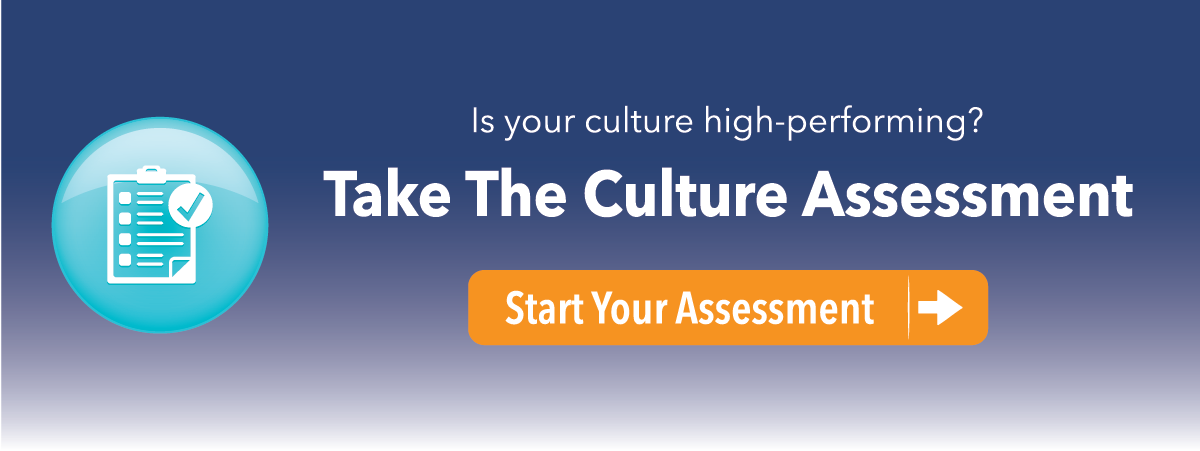
Walk in Others’ Shoes: Why Empathy is Good for Business
By Carole Wehn
Today\’s workers are overwhelmed. They are battling COVID vaccination issues, return-to-the-office questions, child-care concerns, and more.
As a business leader, you may have come up the ranks in the “command and control” world, where you never questioned management’s directives. So you may feel unsure how to respond when your employees tell you they don’t want to come into the office on Mondays and Fridays.
Your customers have also become more demanding. Global competitors provide endless product options. Consumers have been conditioned to receive next-day delivery with free shipping.
How do you manage these shifts in workforce concerns and customer expectations?
The answer isn’t the latest consultancy fad. It’s showing business empathy, one of the managerial “soft skills” that may seem out-of-step with today\’s fast-paced environment.
What is Business Empathy?
Empathy is defined as “the action of understanding, being aware of, being sensitive to, and vicariously experiencing the feelings, thoughts, and experience of another … without having the feelings, thoughts, and experience fully communicated in an objectively explicit manner.”
In a business environment, empathy is awareness and understanding of the needs of colleagues, vendors, and customers. It enables us to develop strong relationships that help us work effectively with others.
Sadly, Psychology Today reports that empathy is on the decline in the United States and elsewhere. Likewise, your organization may need help in fostering understanding among your employees.
Why Has Business Empathy Become More Important?
Most people believe you need to be ruthless to get ahead in business. So why is this “soft skill” of showing empathy suddenly relevant?
Belinda Parmar, CEO of UK consulting firm The Empathy Business, feels that technology and social media growth is responsible. She notes,
“Social media has changed everything and lifted the corporate veil. Now we can all see inside the inner workings of a company, and behavior we don’t like or agree with is much easier to call out.”
Millennial employees, in particular, are requesting leaders and companies to show empathy. With a recent Gallup poll showing that 6 in 10 millennials are open to new job opportunities, it’s critical to keep your workforce engaged by being attuned to employee needs.
Why is Empathy Necessary for Leaders’ Success?
The Center for Creative Leadership has found that working well with people from diverse backgrounds is an essential skill for today\’s business leaders. In addition, leaders who ranked highly as showing empathy to their employees were also considered top performers by their bosses.
These findings are consistent with those of HR consultancy Development Dimensions International, which determined that the most successful leaders excel at listening and responding to others.
Business strategist and transformational leader Jayson Boyers noted in Forbes,
“Once people are able to step out of their offices and mindsets, and experience vulnerability, they truly begin to feel what those around them are feeling. As I try to stress the importance of focusing on others and developing greater empathy, my question for these people is always, ‘How can you walk in someone else’s shoes if you never get out of your chair?’”
How Does Empathy Translate to Better Business Performance?
Brand strategist and author Maria Ross cites four business benefits of empathy and acting with compassion:
- Increased sales, loyalty, and referrals
- Accelerated productivity and innovation
- Greater competitive advantage
- Expanded engagement and collaboration
Sales, Loyalty & Referrals
Selling is all about understanding and meeting your customer’s needs better than anyone else. How can you do that unless you can walk in your customer’s shoes and experience what keeps them up at night?
The importance of being empathetic extends to all customer-facing roles. Customer satisfaction, loyalty, and referrals grow when everyone from customer service to billing shows sensitivity to and understanding of customer needs.
Productivity & Innovation
“Empathy makes you a better innovator,” said Microsoft CEO Satya Nadella, one of several high-profile CEOs who have cited the benefits of business empathy.
He continued, “If I look at the most successful products we [Microsoft] have created, it comes with that ability to meet the unmet, unarticulated needs of customers.” Nadella underscores the importance of truly understanding your customers to anticipate and meet their needs to grow your business.
Competitive Advantage
Empathy\’s positive impact on sales and innovation is illustrated by the high-performing companies leading the list on the 2016 Empathy Index. The Empathy Business identified the top ten most empathetic companies as:
- Alphabet
- Netflix
- Unilever
- Southwest Airlines
- Microsoft
- Whole Foods Market
- Johnson & Johnson
- SAP
In the survey, authors noted that the businesses at the top of the index increased in value twice as fast as those at the bottom, and they generated 50 percent more earnings per employee than the worst performers.
The idea that empathy provides a competitive advantage is shared by Daniel Lubetzky, CEO and founder of KIND. He noted,
“What’s interesting is that as my thinking has evolved… it has become clearer that empathy and kindness offer a distinct competitive advantage… If you can ask yourself questions like, “where is this person coming from?” then you’re able to get to a more productive place quicker, thereby creating value for business and society.”
Engagement & Collaboration
Google is one of the companies that has determined that soft skills are essential to developing their most successful teams. They know that it’s crucial for employees to feel confident and respected to contribute fully. Accordingly, Google looks for qualities such as generosity, curiosity, empathy, and emotional intelligence, as well as engineering expertise.
Top talent wants employers who are great managers, who treat them with empathy and allow them to contribute. With a workforce that is open to frequent job changes, a focus on empathy can help fight the war against attrition. The 2019 State of Workplace Empathy study showed that 93 percent of employees report they are likely to stay with an empathetic employer.
Fostering Empathy in your Workplace
The Center for Creative Leadership (CCL) offers five ways to encourage empathy in the workplace:
- Talk about empathy to signal its value
Employees want authentic leadership – managers whose actions support their words. Given that soft skills like empathy have not traditionally been stressed in the workplace, management must relay the importance of showing compassion and demonstrate it themselves.
- Teach listening skills
To walk in someone’s shoes requires careful listening. Customers and employees need to know that they are being heard. This includes awareness of both verbal and nonverbal communication.
- Encourage genuine perspective-taking
Managers need to view the workplace from their employees’ perspectives. This can only be done when there has been intentional conversation and listening.
- Cultivate compassion
Managers who care about others need to be supported in their viewpoint. Assess managerial training you may be doing around personality types. Are you unconsciously valuing “thinking” over “feeling” traits?
- Support global managers
Empathy and collaboration are particularly important in global businesses. CCL noted, “Empathy is an imperative for effective diversity initiatives.” Genuine curiosity and listening skills are vital to working successfully with teammates from other races, cultures, and backgrounds.
Do You Show Empathy?
Businessolver\’s 2019 State of Workplace Empathy study showed a gap between leaders\’ agreement that empathy is needed in the workplace and their own demonstration of the skill.
The survey found that 92 percent of CEOs said their organization is empathetic, while 72 percent of employees said they work for an empathetic employer. The CEOs acknowledged this gap; a little more than half admitted they struggle with consistently showing empathy in the workplace.
How Can Leaders Demonstrate Empathy?
Leaders become more empathetic by walking around talking to employees and getting to know them individually. Businessolvers found that team members value personal conversations over “employee of the month” and other such recognitions.
Getting to know staff also helps identify signs of employee burnout and personal problems. Checking in with stressed employees and offering support contributes to employee loyalty and engagement.
Employees want an employer who respects their daily struggle to balance home and work responsibilities. Take a hard look at your recruitment, engagement, and retention policies to ensure they address employees’ varied needs. Employee benefits such as flexible hours, daycare, and parental leave contribute to the perception of a workplace as empathetic.
Of course, the best way to find out what sort of policies best suit your employees is to ask them!
Another way to show that you are an empathetic employer is to increase the diversity in your leadership ranks. Nearly nine out of ten HR professionals, CEOs, and employees in the Businessolvers survey said that empathy results from leadership implementing strategies to improve diversity and inclusion.
“Walk in Others’ Shoes”
Working to develop empathy and stressing its importance in the workplace is a great way to turn your organization into a more empathetic environment. However, you need to be intentional if you want to truly change your company’s culture. As CultureWise CEO and author David Friedman wrote in Culture by Design,
“Good organizations are filled with good people who work hard and care and naturally do many good things. But world-class organizations are far more intentional about everything they do – and especially about their culture.”
CultureWise helps organizations design and operationalize their culture. The first step in our approach is to define the set of behaviors (which we call Fundamentals) that drive success in your company. We then help you “ritualize” these behaviors through suggestions for ongoing teaching and practice.
One of the Fundamentals in our library of resources is “Walk in Others’ Shoes.” We define this as:
Understand other people\’s worlds. Know their challenges and frustrations. See things from their perspective. The better you understand them, the more effectively you can anticipate and meet their needs.
This Fundamental speaks to the need to understand and be aware of others’ perspectives, whether it be in showing empathy to your employees or strengthening relationships with customers.
Learn more about the CultureWise approach by visiting our website or by reading Culture by Design, which outlines the eight steps of implementation. A free, two-chapter download of this book is currently available.
You can also subscribe to our complimentary newsletter, Culture Matters.



